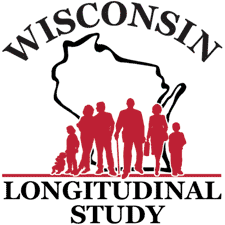WLS Pilot Grant Program

The WLS Pilot Grant program has been suspeneded until we receive additional funding.
The Wisconsin Longitudinal Study at the University of Wisconsin-Madison will award two pilot grants to investigators using the Wisconsin Longitudinal Study (WLS) data for scholarly research. The WLS provides an opportunity to study the life course, careers, retirement, intergenerational transfers and relationships, family functioning, physical and mental health and well-being, morbidity and mortality, and gene-environment interactions from late adolescence to the retirement years. Selected recipients will receive $5,000 to support their research, along with a travel stipend to attend two WLS workshops. The first workshop topic will cover training and offer hands-on experience with the data with assistance from WLS staff. The training workshop will tentatively take place in Madison on August 1st and 2nd, 2013. The 2nd workshop will be held one year later and pilot grant winners will present their research findings.

Funding for this pilot grant program originates from the National Institute on Aging Grant AG021079.
Eligibility: Applications are welcomed from investigators in any field including but not limited to anthropology, demography, economics, epidemiology, family studies, genetics, gerontology, human development, medicine, nursing, psychology, public health, and sociology. Grant application must be received by May 6, 2013. This grant program is intended to support new users and new uses of WLS data. Researchers who already have extensive experience with WLS data are not eligible to apply. We encourage applications from graduate students, faculty, and researchers at all levels who have not previously used WLS data. Applicants must be affiliated with either educational institutions or with 501(c) (3) nonprofit organizations.
Please contact Carol Roan by e-mail roan@ssc.wisc.edu or by telephone (608) 265-6196 if you have further questions.
To apply send a CV and proposal, limited to five double-spaced pages, to roan@ssc.wisc.edu. Graduate student applicants must also submit a letter of support from a faculty member.
Proposals will be reviewed according to the following criteria:
1. Significance: Does this study address an important problem or theoretical question? If the aims of the application are achieved, how will scientific knowledge be advanced? What might be the effect of this study on the concepts or methods that drive this field?
2. Innovation: Does the project employ novel concepts, approaches, or methods? Are the aims original and innovative? Does the project challenge existing paradigms, develop new methodologies, or incorporate a new cross-disciplinary spin on an old problem?
3. Research approach: Are the conceptual framework, design, methods and analyses adequately developed, well-integrated, and appropriate to the aims of the project? Does the applicant acknowledge potential problem areas and consider alternative tactics?
4. Appropriate use of the WLS data: Is the analysis well suited to the content and population of the WLS?
5. Investigator: Is the investigator appropriately trained and well suited to carry out this work?
